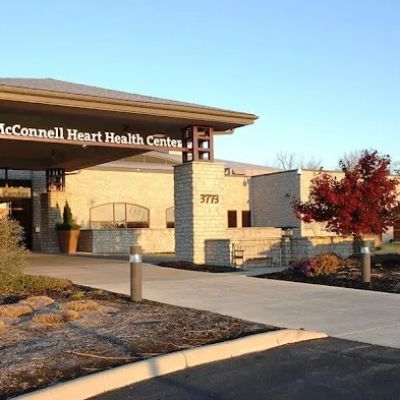Heart Disease and Best Foods to Eat – A Guide to Heart Health and Nutrition
Heart disease remains one of the leading causes of death worldwide, and it's crucial to focus on prevention and management through a healthy lifestyle. One of the most impactful ways to protect your heart is through your diet. Eating the right foods not only helps prevent heart disease but also supports overall heart health. But with so many diet choices available, how do you know which foods are best for your heart?
In this article, we’ll explore the connection between heart disease and the foods you eat, and we’ll provide a list of the best foods to incorporate into your diet to improve heart health. Whether you're looking to prevent heart disease or manage an existing condition, these dietary tips can guide you toward making healthier choices for a stronger heart.
1. Understanding Heart Disease and Its Connection to Diet
Heart disease refers to a variety of conditions that affect the heart, including coronary artery disease, heart attacks, and arrhythmias. These conditions can result from factors like high blood pressure, high cholesterol, smoking, lack of physical activity, and poor diet. Diet plays a crucial role in controlling many of these risk factors, particularly cholesterol and blood pressure.

1.1 How Diet Affects Heart Health
Diet influences your cholesterol levels, blood pressure, and overall weight, all of which can affect your heart's health. Consuming foods high in saturated fats, trans fats, and sodium can contribute to high cholesterol and high blood pressure, both of which are major risk factors for heart disease. On the other hand, eating heart-healthy foods can help lower these risk factors and support proper heart function.
Capital Health Medical Center – Hopewell
capital health medical center hopewell
1 Capital Way, Pennington, NJ 08534, USA

1.2 Foods to Avoid for Heart Disease Prevention
To protect your heart, it’s important to limit or avoid foods that can contribute to heart disease. These include:
- Processed foods: These often contain unhealthy fats, sodium, and sugar.
- Red and processed meats: These meats are high in saturated fats and cholesterol.
- Fried foods: Fried foods are typically high in trans fats, which can raise bad cholesterol levels.
- Refined sugars: Excessive sugar intake can lead to weight gain and high blood pressure.
Now, let's focus on the foods that can help reduce your risk and improve your heart health.
2. Best Foods to Eat for Heart Disease Prevention
Eating a variety of nutrient-rich foods can help maintain heart health. Here’s a list of the best foods to incorporate into your diet to reduce the risk of heart disease:
2.1 Fatty Fish
Fatty fish such as salmon, mackerel, and sardines are excellent sources of omega-3 fatty acids. Omega-3s have been shown to lower blood pressure, reduce inflammation, and improve overall heart health by reducing triglyceride levels. Eating fatty fish two to three times a week is a great way to protect your heart.
2.2 Leafy Green Vegetables
Leafy greens like spinach, kale, and swiss chard are high in vitamins, minerals, and fiber, which help lower blood pressure and improve heart function. They are rich in potassium, which helps balance sodium levels in the body, and they also contain antioxidants that reduce inflammation in the heart and blood vessels.
2.3 Nuts and Seeds
Nuts such as almonds, walnuts, and pistachios are packed with healthy fats, fiber, and antioxidants. These nutrients help lower bad cholesterol levels (LDL) and improve blood vessel function. Additionally, chia seeds and flaxseeds are excellent sources of omega-3 fatty acids, which contribute to reducing the risk of heart disease.
2.4 Whole Grains
Whole grains like oats, quinoa, and brown rice are full of fiber, which helps lower cholesterol and stabilize blood sugar levels. Fiber also supports healthy digestion, reducing the risk of obesity, which is a significant factor in heart disease. Replacing refined grains with whole grains can improve heart health and contribute to weight management.
2.5 Berries
Berries like blueberries, strawberries, and raspberries are rich in antioxidants, vitamins, and fiber. Studies have shown that the compounds in berries, particularly anthocyanins, can help lower blood pressure and reduce the risk of heart disease by improving cholesterol levels and reducing inflammation.
2.6 Legumes
Beans, lentils, and peas are packed with plant-based protein, fiber, and essential nutrients like potassium and magnesium. These foods help lower blood pressure and cholesterol levels while providing a heart-healthy alternative to animal proteins. Legumes are also low in fat and calories, making them an excellent choice for weight management.
3. Additional Lifestyle Tips for a Healthy Heart
While diet plays a vital role in heart disease prevention, it's essential to complement healthy eating habits with other heart-healthy lifestyle practices. Here are some additional tips to improve your heart health:
3.1 Exercise Regularly
Regular physical activity, such as walking, running, or swimming, helps improve cardiovascular health by lowering blood pressure and cholesterol levels. Aim for at least 30 minutes of moderate exercise most days of the week.
3.2 Maintain a Healthy Weight
Being overweight or obese increases the risk of developing heart disease. Adopting a heart-healthy diet and engaging in regular physical activity can help you maintain a healthy weight and reduce the strain on your heart.
3.3 Manage Stress
Chronic stress can negatively impact heart health by raising blood pressure and increasing inflammation. Practice stress-relieving activities like yoga, meditation, or deep breathing exercises to support heart health.
3.4 Quit Smoking
Smoking is a major risk factor for heart disease, as it damages blood vessels and reduces oxygen levels in the blood. If you're a smoker, quitting is one of the most important steps you can take to improve your heart health.
4. Real-Life Stories of Heart-Healthy Diets
Many individuals have seen remarkable improvements in their heart health by adopting a heart-healthy diet. For instance, a woman in her 50s who struggled with high blood pressure and high cholesterol made changes to her diet by incorporating more leafy greens, fatty fish, and whole grains. Within months, her cholesterol levels dropped, and she felt more energetic and healthier.
Another inspiring story comes from a middle-aged man who reversed his prediabetic condition by reducing processed foods, increasing his intake of legumes and berries, and exercising regularly. His doctor was impressed by the positive changes in his heart health and overall well-being, showing that a heart-healthy diet can lead to significant improvements in quality of life.
5. Where to Find Heart-Healthy Foods
Finding high-quality heart-healthy foods is easy if you know where to shop. Look for fresh produce, whole grains, and lean proteins at local farmers' markets, grocery stores, or specialty health food stores. Many online platforms like HeartCare Hub also offer premium heart-healthy foods and supplements to help you maintain a balanced and nutritious diet.
Investing in quality ingredients that promote heart health is one of the best things you can do for your body. A heart-healthy diet is not just about preventing disease; it’s about enhancing your overall well-being and improving your life.





















Deborah Heart and Lung Center
deborah heart and lung center
200 Trenton Rd, Browns Mills, NJ 08015, USA